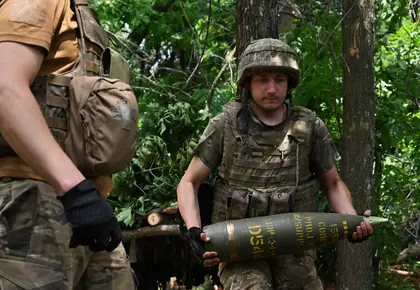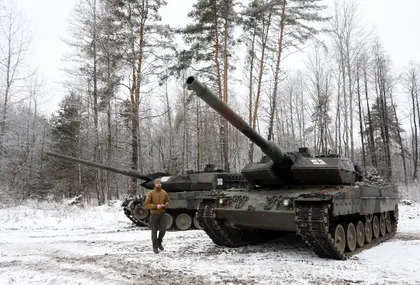Brigadier General Oleksandr Tarnavskyi, who led Ukraine’s counteroffensive, said the military had to scale back operations due to insufficient artillery shells across the frontline, as reported by Reuters.
Tarnavskyi's comments came amidst the failed approvals for aid to Ukraine in both the US and EU, and he called the shortage “a very big problem” that requires frequent shell redistribution and scaling down operations, without going into details.
JOIN US ON TELEGRAM
Follow our coverage of the war on the @Kyivpost_official.
“There's a problem with ammunition, especially post-Soviet [shells] – that's 122 mm, 152 mm. And today these problems exist across the entire frontline,” he said.
It was reported in November that the EU failed to deliver the 1 million shells pledged to Ukraine, and only 480,000 munitions of various types were acquired for the purpose. Some believed technical and logistics issues were to blame, while some cited bureaucratic hurdles in joint munition productions.
The owner of Bulgarian arms manufacturer Emco, which is one of the few manufacturers within NATO and the EU that produces Soviet munitions for Ukraine, also alleged in November that Russian intelligence continued to sabotage his facilities.
Meanwhile, analysts have documented Russian use of North-Korean-made artillery shells on the front, which might indicate the lack of munitions for Russia as well.
Both Ukraine and Russia rely on artilleries to provide fire support in the current war, where thousands of shells are being fired each day along a frontline that stretches more than a thousand kilometers.

Russian Air Attack Kills Nine in Sumy Region
As per the Reuters report, Tarnavskyi also said Russian troops are changing their tactics near Avdiivka, a Ukrainian stronghold in eastern Ukraine. He said Russia has “partial success” in the area but Ukraine was able to hold the line.
“I believe that we are firmly maintaining these lines today,” he said. “Today, the enemy is pressuring us with their numbers. They have never cared and will not care for their personnel.”
He also said the brigades are devising ways to let the troops rest.
“Today we have certain difficulties with the personnel that we have on the frontlines. Yes, today they are not so fresh, not so rested,” he said. “Every commander should have a reserve.”
You can also highlight the text and press Ctrl + Enter










